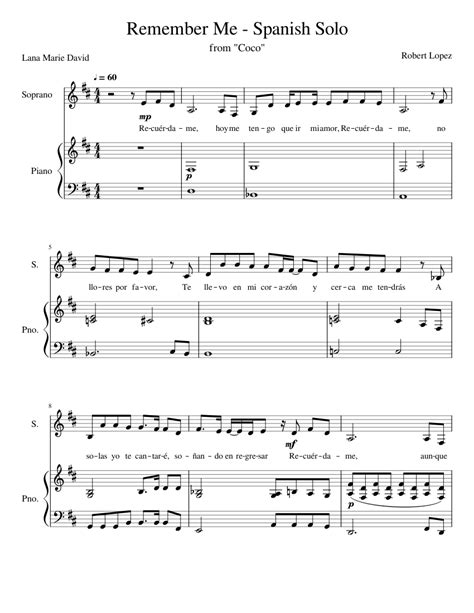The phrase “remember me” in Spanish can be translated to “recuerdame.” However, the way you express this sentiment can vary depending on the context and the level of formality you wish to convey. For instance, if you’re speaking to someone you address as “tú,” you might say “recuerdame” or more casually, “acuérdate de mí.” If you’re speaking to someone you address as “usted,” the phrase would be “recuérdeme” or “acuérdese de mí” for a more polite tone.
In the context of a romantic relationship or a deep personal connection, expressing “remember me” can be a poignant way to ask someone to hold onto memories of you. This sentiment is beautifully captured in the title of a famous song, “Recuérdame,” from the Disney movie “Coco,” which delves into the importance of memory and remembrance in Mexican culture, highlighting the significance of not forgetting one’s roots and heritage.
Let’s delve deeper into the nuances of expressing “remember me” in Spanish, exploring both the linguistic aspects and the cultural contexts in which such expressions are used.
Linguistic Nuances
Informal vs. Formal: The distinction between informal and formal speech is crucial. “Recuerdame” (or “acuérdate de mí”) is used with friends or in informal settings, while “recuérdeme” (or “acuérdese de mí”) is more appropriate for formal situations or when addressing someone with “usted.”
Subjunctive Mood: In certain contexts, especially when expressing doubt, uncertainty, or potentiality about remembering, the subjunctive mood might be used. For example, “Espero que te acuerdes de mí” (I hope you remember me).
Regional Variations: While “recuerdame” and its variants are widely understood, regional dialects might offer different expressions for “remember me.” For instance, in some Latin American countries, “acuérdate” might be more commonly used than “recuerdame.”
Cultural Contexts
Family and Heritage: In many Spanish-speaking cultures, especially in Mexico and other parts of Latin America, the concept of remembering one’s ancestors and cultural heritage is deeply valued. The Day of the Dead (Día de Muertos) is a prime example, where families honor their deceased loved ones, ensuring they are not forgotten.
Love and Relationships: In romantic relationships, asking someone to remember you can be a gesture of love and longing. This is often seen in literature, music, and films from Spanish-speaking countries, where the theme of enduring love transcends time and distance.
Historical and Literary References: Spanish literature is replete with references to memory and remembrance. Authors like García Márquez and poets like Lorca have explored the power of memory in shaping identity and culture.
Practical Expressions
- Recuerdame como eres: Remember me as you are.
- No me olvides: Don’t forget me.
- Quiero que te acuerdes de mí: I want you to remember me.
- Espero que no me hayas olvidado: I hope you haven’t forgotten me.
In conclusion, “remember me” in Spanish is not just about the direct translation of “recuerdame” but encompasses a range of expressions and sentiments that vary by context, formality, and cultural significance. The power of memory and the act of remembering play crucial roles in Spanish-speaking cultures, reflecting deep values of heritage, love, and identity.



